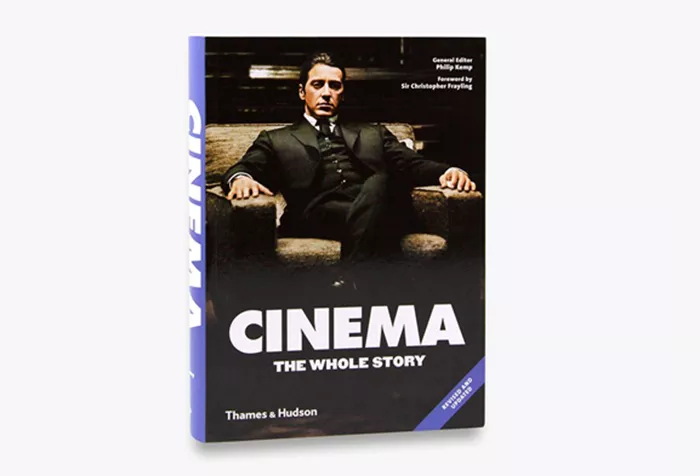For many, movies are more than just entertainment—they are a passion and a deep fascination. Cinephiles often seek to understand not only what appears on screen but also the stories behind the scenes: who made the film, why certain choices were made, and what challenges arose during production. Fortunately, numerous outstanding books offer unique insights into the art and industry of filmmaking.
Far from mere trivia collections, the best cinema books serve as war stories, love letters, diaries, and critical examinations. They reveal facets of filmmaking that deepen our appreciation of the medium as a dynamic, evolving art form. Below is a curated list of ten essential reads for anyone passionate about cinema, illuminating the craft, history, and personalities that shape the movies we love.
10. Adventures in the Screen Trade (1983) by William Goldman
Goldman, the screenwriter behind Butch Cassidy and the Sundance Kid and The Princess Bride, offers a candid and witty look at Hollywood’s unpredictable nature. His memoir shares anecdotes about scripts that never made it, executives who panicked, and the often chaotic realities of screenwriting. Essential reading for aspiring filmmakers, Goldman reminds readers that even insiders are often guessing as much as the audience.
9. Cinema Speculation (2022) by Quentin Tarantino
Rather than a traditional film theory book, Tarantino’s Cinema Speculation is a passionate, personal exploration of the films that shaped him, particularly gritty ‘70s thrillers and cult classics. The book’s informal, sometimes meandering style offers insight into Tarantino’s creative mind, making it a valuable read for understanding the influences behind one of cinema’s most distinctive voices.
8. In the Blink of an Eye (1995) by Walter Murch
Editor Walter Murch, known for his work on Apocalypse Now and The English Patient, presents a philosophical reflection on film editing. This concise book explores editing as an emotional and rhythmic art, emphasizing the significance of cuts and silences. Murch’s approach elevates editing from technical craft to a vital storytelling tool.
7. Making Movies (1995) by Sidney Lumet
Renowned director Sidney Lumet pulls back the curtain on filmmaking with a detailed, honest account of the production process. From shot selection to handling difficult performances, Lumet’s book is a patient, insightful guide that humanizes the director’s role and the collaborative chaos behind classic films like 12 Angry Men and Network.
6. Easy Riders, Raging Bulls (1998) by Peter Biskind
This book chronicles the turbulent rise of New Hollywood in the 1970s, spotlighting legendary filmmakers such as Coppola, Scorsese, and Altman. Biskind combines Hollywood gossip with historical analysis to depict an era marked by creative breakthroughs and personal excesses, illustrating how auteur-driven cinema reshaped the industry.
5. The Big Picture: The Fight for the Future of Movies (2017) by Ben Fritz
Ben Fritz, a Wall Street Journal editor, examines the seismic shifts in Hollywood following the digital age, from the Sony hack scandal to the rise of streaming giants like Netflix. Fritz details how the industry’s focus shifted from star-driven films to franchises, offering an incisive look at business strategies and changing audience habits.
4. Hitchcock/Truffaut (1966) by François Truffaut
This classic book is an extended interview between French director François Truffaut and Alfred Hitchcock. It reads as a masterclass in filmmaking, with Hitchcock dissecting his iconic films shot by shot. The book provides rare insight into the contrasting creative minds of two cinema legends and remains a cornerstone for film students and enthusiasts.
3. Pictures at a Revolution (2008) by Mark Harris
Harris focuses on the transformative year of 1967, detailing the stories behind five pivotal Oscar-nominated films that marked the end of old Hollywood and the dawn of a new cinematic era. The book blends cultural history with Hollywood politics, highlighting how these movies reflected and influenced major social changes.
2. Rebel Without a Crew (1995) by Robert Rodriguez
Rodriguez’s memoir recounts the making of his debut film El Mariachi on a shoestring budget of $7,000. Part diary, part guerrilla filmmaking manual, the book offers practical, scrappy advice for independent filmmakers and celebrates resourcefulness and determination in movie-making.
1. Life Itself (2011) by Roger Ebert
The late Roger Ebert’s memoir goes beyond film criticism to tell the story of his life through cinema. Known as one of the greatest film critics, Ebert reflects on his career, personal struggles, and the profound impact movies have on human empathy. This heartfelt tribute to film is both inspiring and deeply personal.
Whether you seek to understand the art, the business, or the personal passion behind cinema, these ten books provide invaluable perspectives that enrich any movie lover’s experience.

